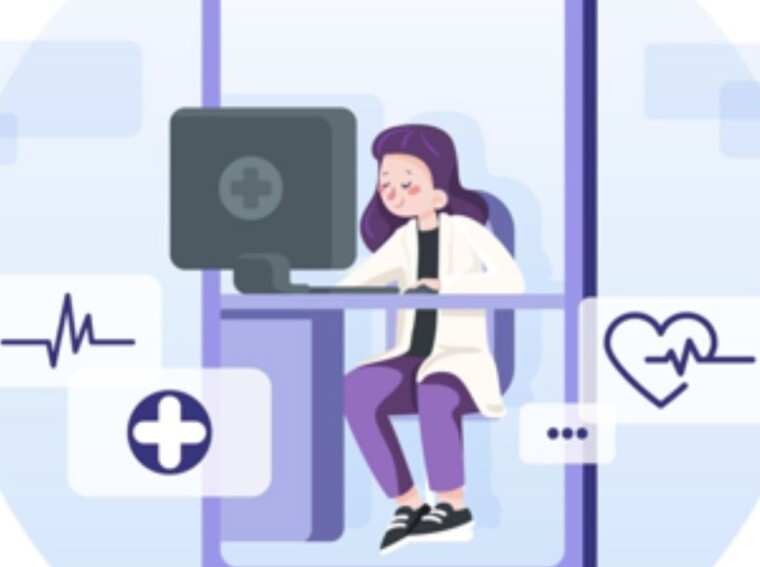The healthcare industry is undergoing a seismic shift, embracing innovative approaches to enhance patient care and wellness. A standout in this transformation is the concept of gamification in healthcare. This approach leverages game mechanics to motivate and engage patients, leading to improved health behaviors and outcomes. This detailed exploration dives into the nuances, benefits, real-world applications, and the emerging trends.
The Essence and Mechanics of Gamification in Healthcare
Gamification is not merely about making health tasks fun; it’s a strategic approach designed to enhance patient engagement, motivation, and education. This method applies game design elements such as points, levels, challenges, and rewards to health-related activities. It taps into the psychological propensity for play, turning routine health tasks into more engaging, goal-oriented experiences.
At its core, gamification employs several mechanisms:
● Points systems: Rewarding patients with points for completing health-related tasks encourages consistent behavior.
● Progress bars and levels: Visual indicators of progress help patients see the tangible results of their efforts, motivating continued engagement.
● Challenges and quests: Setting specific challenges related to health goals can stimulate commitment and achievement.
● Social elements: Integrating social features allows patients to share achievements, fostering a supportive community and healthy competition.
Broad-Spectrum Benefits of Gamification
The incorporation of gamification in healthcare settings brings myriad benefits, addressing both preventive and therapeutic aspects:
● Boosted engagement and compliance: Patients are more likely to adhere to treatment plans and participate in wellness activities when they’re engaging and rewarding.
● Behavioral change and habit formation: Gamified elements can effectively alter behaviors, aiding in the development of healthier habits.

● Enhanced knowledge and self-management: Through interactive learning experiences, patients can better understand their health conditions and how to manage them.
● Data collection and personalization: Gamification facilitates the collection of patient data, enabling personalized healthcare experiences and insights for providers.
Integrating Gamification for Healthcare: Real-World Success Stories
Across the globe, healthcare providers and organizations are adopting gamification strategies with significant success:
● Chronic disease management: Platforms utilizing gamification have shown remarkable success in managing chronic conditions. For example, diabetes management apps incorporating game mechanics have led to notable improvements in glucose control and patient engagement.
● Rehabilitation and physical therapy: Gamified rehabilitation programs, developed with comprehensive game development services, have transformed tedious physical therapy into engaging routines, significantly improving patient adherence and recovery outcomes.
● Mental health applications: Interactive apps employing gamification principles offer new ways to tackle mental health challenges, providing tools and activities that promote mental wellness, resilience, and therapy adherence.
● Preventive health and wellness programs: Initiatives designed to promote general health and prevent diseases leverage gamification to encourage regular physical activity, healthy eating, and other preventive measures.
Challenges and Ethical Considerations
While the potential of gamification in healthcare is immense, its implementation comes with challenges:
● User diversity: Creating games that are universally appealing and effective across different demographics is complex.
● Data privacy and security: Handling sensitive health data within gamified apps requires stringent security measures.
● Sustainability and long-term engagement: Ensuring that gamified solutions remain engaging and effective over time is crucial for sustained health benefits.
● Ethical use of gamification: Ensuring that gamification tactics do not manipulate patients but instead empower and educate them is essential for ethical healthcare practice.
Looking to the Future: Trends and Innovations
As we move forward, several trends are shaping the future of gamification in healthcare:
● Advanced personalization: Leveraging AI and machine learning, gamified health platforms are evolving to offer more personalized experiences based on individual health data and preferences.
● Integration with wearable technologies: Pairing gamified health apps with wearable devices offers real-time health monitoring and feedback, enhancing the effectiveness of gamified interventions.
● Virtual and augmented reality: The integration of VR and AR into gamified health solutions offers immersive experiences that could revolutionize patient education and therapy.
Conclusion
The impact of gamification in healthcare is profound, offering innovative solutions to age-old challenges in patient engagement and health management. By harnessing the power of game mechanics, healthcare can become more engaging, effective, and enjoyable for patients. However, the journey doesn’t end here.

As technology advances, the collaboration between healthcare professionals and game development service professionals will continue to be vital, driving the evolution of this exciting field. The future of healthcare gamification holds the promise of more personalized, interactive, and effective health.

